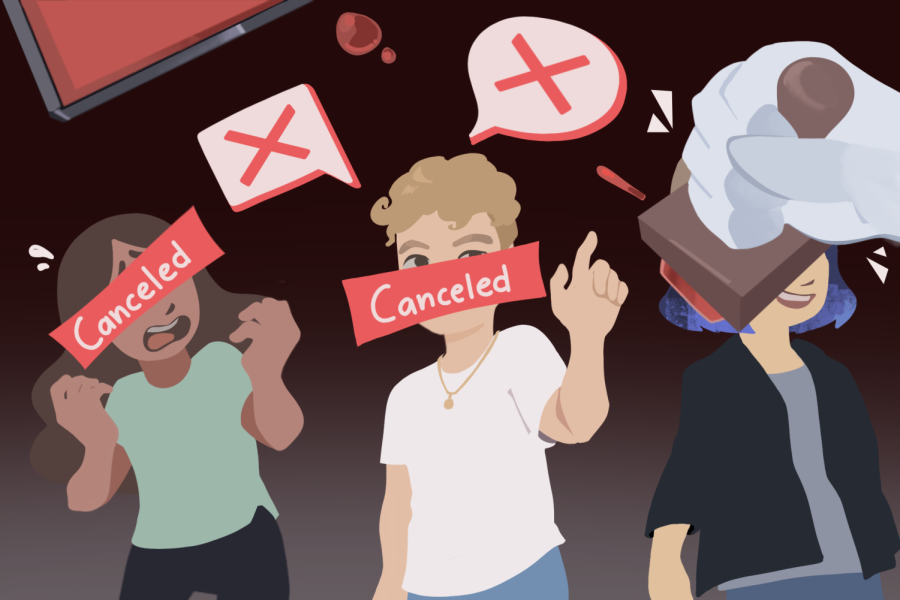OPINION: Cancel culture doing more harm than good
February 15, 2023
Cancel culture, once an impetus for social change and justice, has become a weapon used to attack and dismantle the lives of anyone that it doesn’t agree with.
Though there have been some notable and righteous victories associated with cancel culture, such as Harvey Weinstein, R. Kelly and Bill Cosby, no one talks about its innocent victims like Constance Wu, Daphne Dorman and Scott Cawthon, whose cancellations were not because of any heinous action but because of unpopular opinion.

Wu is a prominent Asian American actress best known for her role in the Oscar-winning film “Crazy Rich Asians.” In May of 2019, Wu went on Twitter to show her lack of enthusiasm after finding out the popular TV sitcom “Fresh Off the Boat” had been renewed for another season.
She tweeted, “so upset right now that I’m literally crying ugh.” Wu was called “ungrateful and ungraceful.” She was also categorized as a diva and inconsiderate of other cast members.
Wu was ostracized by fans, and some friends turned away from her. Wu attempted suicide in 2019 but was helped by a friend and admitted to a psychiatric emergency facility. Wu has received psychiatric counseling for her mental health and has been open about her experience.
Cawthon, known for the immense success of the “Five Nights at Freddy’s” video game series, found himself in hot water after information posted on OpenSecrets landed on Twitter showing he had donated to the political campaigns of several politicians including former President Donald Trump and Senate Republican Mitch McConnell. Cawthon was then labeled guilty by association and was deemed racist and homophobic by his African American and LGBT gamers because of his political contributions.
What the masses had failed to realize is that he donated to politicians of all kinds: Black, white, Republican and Democratic. In a note posted to his Reddit account, Cawthon explained why he had done so, but to no avail. With threats mounting and the desire to protect his family, Cawthon removed himself from the series and was forced to retire.
“I have always loved, and will continue to love, this community and this fanbase, even if someday it doesn’t include me anymore.”
If you’ve watched Dave Chappelle’s Netflix special “Sticks and Stones,” then you know who Dorman is. Dorman was a transgender comedian, activist in the community and a good friend of Chappelle’s. Chappelle’s special included jokes about the LGBT community that were deemed transphobic. Dorman had been to previous shows and came to the defense of Chappelle.
She tweeted several times in support of Chappelle and the special. In the weeks following, Dorman was swarmed by threats from the trans community and labeled a traitor. In October 2019 Dorman died by suicide, leaving behind a daughter and two sisters.
Prior to her death, Dorman posted a suicide note on her Facebook page. “I’m sorry,” it read. “I’ve thought about this a lot before this morning. How do you say ‘goodbye’ and ‘I’m sorry’ and ‘I love you’ to all the beautiful souls you know? For the last time….”
Cancel culture is said to be justice for marginalized people who can’t always be heard by conventional means. But we have turned it into a weapon of destruction fueled by sensationalism, lack of understanding and lack of empathy. It has become a bully that couldn’t care less if it causes suicide, mental instability or puts the lives of others in danger.
We need to open our eyes to what cancel culture has become and turn it back to its intended purpose: a tool for justice and a way for those who have suffered to be heard, helped and healed.





